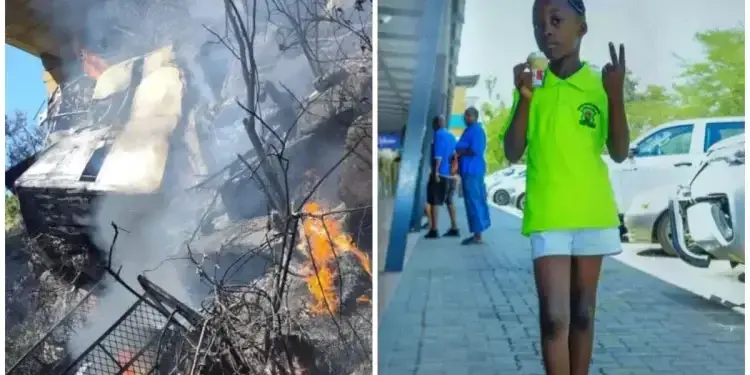Trump Disappointed to Learn SA Refugees Have No Farming Expertise
Trump Disappointed by South African Refugees‘ Lack of Farming Expertise: “They Were Just a Bunch of Car Guards,” He Says
In a surprising turn of events, U.S. President Donald J. Trump recently voiced his frustration after discovering that South African refugees admitted under his “Mission South Africa” initiative lack the farming expertise he anticipated.

The initiative, launched in March 2025, aimed to fast-track U.S. citizenship for South African farmers facing alleged land seizures. However, Trump was reportedly shocked to learn that the first group of refugees included former car guards, part-time rappers, and others with no agricultural background, prompting his now-viral remark: “They were just a bunch of car guards.”
This development has sparked widespread debate, with implications for U.S. immigration policy, international relations, and the agricultural sector. In this article, we’ll explore the context of Trump’s statement, the controversy surrounding the “Mission South Africa” program, and its potential impact on American farming and public sentiment.
The Background of “Mission South Africa”
President Trump’s “Mission South Africa” was introduced to provide refuge for white South African farmers, whom he claimed were facing “horrible” conditions due to land reform policies. The program was rooted in Trump’s long-standing criticism of South Africa’s land policies, amplified by figures like Elon Musk, who has highlighted alleged “white genocide” in the country. The initiative promised to resettle farmers in rural U.S. areas like Iowa and Nebraska, where agricultural expertise is in demand.
However, the first group of 59 Afrikaner refugees, who arrived at Washington Dulles International Airport on May 12, 2025, did not meet these expectations. According to reports, many were urban workers with no farming experience, leading to Trump’s disappointment. One refugee, Jaco, a 26-year-old former car guard, expressed confusion, stating, “I thought we were coming for opportunity, maybe a shot at becoming an influencer.” Another, Corné, offered to direct traffic in parking lots but admitted he had never worked on a farm.
Why the Mismatch Happened
The disconnect between Trump’s expectations and the refugees’ skill sets stems from several factors:
- Misinformation About South African Farmers: Trump’s narrative of “sun-bronzed farmers” fleeing persecution may have been based on exaggerated claims. South African officials, including President Cyril Ramaphosa, have repeatedly denied widespread land seizures or targeted violence against white farmers. Police data from 2020–2024 shows only 53 farmers were killed, compared to 101 farm workers, mostly Black, undermining claims of a “genocide.”
- Urban Refugee Demographics: Many of the refugees came from urban areas like Johannesburg, where car guarding and informal work are common. The assumption that all Afrikaners are farmers overlooked South Africa’s diverse economy, where only a small percentage of the population is engaged in agriculture.
- Fast-Tracked Vetting Process: The “Mission South Africa” program expedited refugee applications, processing them in just three months compared to the typical 18–24 months for other refugees. This haste may have led to inadequate screening of applicants’ skills or backgrounds.
Public and Political Reactions
Trump’s comment about “car guards” has fueled both criticism and satire. Posts on X reflect a mix of sentiments, with some users mocking the situation and others accusing the administration of prioritizing white refugees over others. For example, one X post quipped, “Elon Musk lied to him,” referencing Musk’s influence on the program.
Critics, including civil rights activist Al Sharpton and Senator Chris Van Hollen, have called the program a “double standard,” noting that Trump suspended broader refugee admissions while fast-tracking Afrikaners. The Episcopal Migration Ministries refused to participate, citing racial justice concerns. Meanwhile, South African officials expressed amusement, with one diplomat stating, “We’re just surprised Trump didn’t ask for gold first.”
On the other hand, supporters argue that the refugees, regardless of their skills, deserve safety. White House deputy chief of staff Stephen Miller defended the program, claiming it addresses “textbook” racial persecution.
Impact on U.S. Agriculture
The lack of farming expertise among the refugees poses challenges for the U.S. agricultural sector, which relies heavily on immigrant labor. Approximately 42% of U.S. farmworkers are undocumented, and farmers have raised concerns about labor shortages amid Trump’s mass deportation plans. The Department of Agriculture is now scrambling to adapt its New Farmer Integration Program, introducing crash courses in farming basics to help the refugees integrate.
However, the mismatch could exacerbate existing labor issues. As one Iowa farmer noted, “We need skilled workers, not people who think a chicken lays nuggets.” Expanding the H-2A visa program, which brings temporary foreign workers, has been proposed as a solution, but it remains controversial due to concerns about worker exploitation.
Takeaways-Trump Disappointed to Learn SA Refugees
For those searching for information on this topic, here are key takeaways optimized for search intent:
- Trump South African Refugees: The “Mission South Africa” program aimed to resettle white farmers but included urban workers like car guards, leading to Trump’s disappointment.
- Car Guards Controversy: Trump’s viral “car guards” comment highlights a mismatch between expectations and reality in the refugee program.
- U.S. Farming Labor Shortage: The lack of agricultural skills among refugees could worsen labor shortages in the U.S., where 42% of farmworkers are undocumented.
- South Africa Land Reform: Claims of “white genocide” and land seizures are disputed by South African officials, with data showing limited violence against farmers.
Conclusion
President Trump’s “Mission South Africa” initiative has stirred controversy, with his “car guards” remark encapsulating the gap between rhetoric and reality. While the program aimed to bring skilled farmers to the U.S., the arrival of urban refugees with no agricultural experience has raised questions about vetting, policy priorities, and the future of American agriculture. As the administration navigates this fallout, the debate over immigration, race, and labor will likely intensify, shaping public discourse in the months ahead.
For more details, check reputable sources like ABC News or The New York Times, and follow discussions on X for real-time sentiment.

